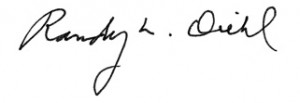Dear Friends,
In my previous message I wrote about the importance of academic freedom and how a free and open exchange of ideas is a necessary condition for building a strong university and a democratic society.
Why do we embrace such an ideal? It helps to look back at the origins of our state universities, born with the Jeffersonian view that society is enlightened and improved by our study of the humanities.
Jefferson knew that our young democracy needed the humanities—philosophy, literature, languages, politics and the arts—to teach its citizens and leaders how to think creatively and critically in a world more accustomed to kingdoms and fiefdoms than to rule by the people. This new world needed citizens who would reason and ask questions, who would study the histories of many cultures and societies in an effort to understand the lessons of the past and imagine a better future.
I saw this demonstrated recently at our college’s annual Humanities Research Award Symposium. English Professor Janine Barchas offered us a unique view of our present-day culture through the lens of Jane Austen’s Regency England, while also showing us how to use 21st century web technology to bring this past alive. This is just one example from a day filled with presentations of original research that gave us new insights into what it means to be human in our time.
This research is not limited to our faculty. Students such as Margaret Clark, one of our graduate fellows, studies civil wars and uprisings that occurred throughout Roman history in hopes of gaining a wider understanding of civil conflict in general. Our undergraduates also seek to understand their world through original research on topics ranging from literature to politics. Some are presenting their findings at the Liberal Arts Undergraduate Research Reception this week, an event I always look forward to attending.
What one discovers in all of this activity are faculty and students who daily demonstrate the importance of basic research in the humanities: posing questions without knowing where they will lead, and in the process creating new knowledge that advances our society and betters our world.
There is understandable concern these days about our nation’s global competitiveness in the STEM disciplines, but we should never lose sight of the importance of the humanities in maintaining our competitive edge. When it comes to innovation, the freedom to question and imagine gives us that edge.
Jill Robbins, professor and chair of Spanish and Portuguese, made a strong argument for the humanities in a recent interview with the Daily Texan. She noted that there’s a tendency to think that certain majors have a pathway into immediate employment, while others—such as foreign languages—do not.
“It’s scary because a lot of chatter that you hear is narrowly focused on a certain kind of work,” she said. “You don’t want to be that kind of worker; you want to be a worker who can move around and do creative and intelligent things. So turn down the chatter.”
It is an appeal to a richer life, not necessarily in terms of remuneration, but in terms of the possibilities it offers anyone who embraces the spirit of the humanities.
Sincerely,
Randy L. Diehl, Dean
David Bruton, Jr. Regents Chair in Liberal Arts

